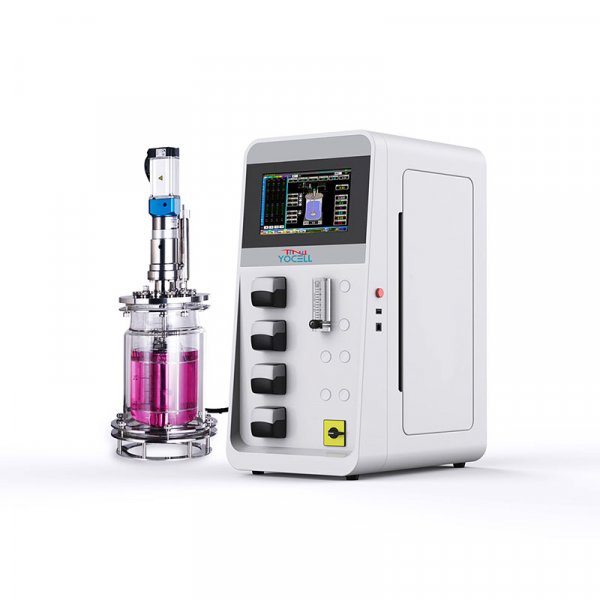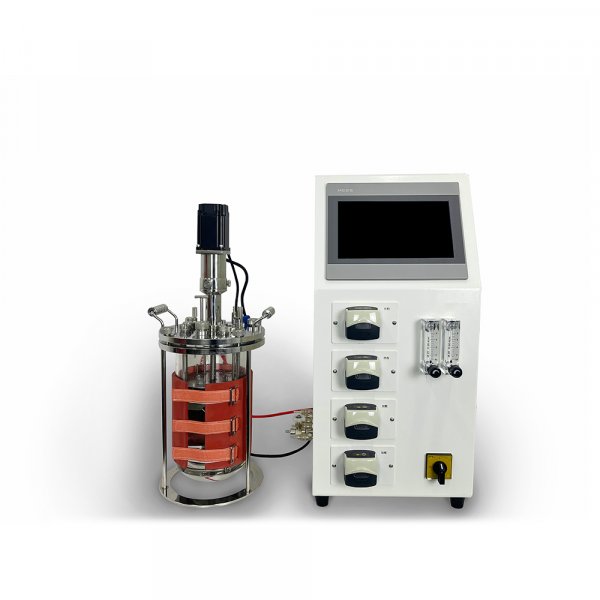In recent years, as consumer demand for green, healthy and safe products continues to grow, the cosmetic industry has also begun to undergo a number of technological changes. In these technological innovations, cosmetics produced by fermentation technology have better development in moisturizing, whitening, anti-aging, soothing and other efficacies, which are loved by consumers and have a broad market development prospect.
I. The development status of fermentation technology
Fermentation technology refers to the use of microbial physiological activities to make organic matter decomposition of the biochemical reaction process, based on the appropriate environment and medium, through the growth and metabolism of microorganisms and life activities to produce microbial organisms themselves, direct metabolites or secondary metabolites of the biochemical reaction.
Fermentation is the earliest biochemical reaction contacted by human beings, and brewing wine, making sauce and vinegar are the earliest fermentation processes. Modern fermentation technology is based on the intersection of multiple disciplines, with industrial fermentation for large-scale material processing and production, and the technical application field is no longer limited to food and beverage categories, but extends to the field of medicine, cosmetics and so on.
Fermentation is generally categorized into two forms, one is liquid fermentation and the other is solid fermentation.
Compared with chemical methods, fermentation technology has the advantages of better controllability, higher safety, energy saving, less by-products produced and less pollution to the environment, etc. Moreover, the decomposability of microorganisms can keep the biosynthesis of special structures highly homogeneous, ensuring the safety and efficacy of the products.
Nowadays, fermentation technology has become the application direction and R&D hotspot in the field of cosmetics, for example, the filtrate of galactose yeast-like yeast fermentation product and the lysate of diastatic yeast fermentation product have been added to high-end skin care products. More and more brands and companies are beginning to apply fermentation technology to product terminals to continuously improve the safety and efficacy of cosmetics.
II. Application of fermentation technology in cosmetics
Currently, the application of fermentation technology in cosmetics is mainly categorized into: fungal fermentation, bacterial fermentation and primary biological fermentation. Among them, fungal fermentation includes: yeast fermentation, medicinal fungal fermentation and marine fungal fermentation.
Fungal fermentation
1. Yeast Fermentation
Yeast fermentation is widely used in the field of cosmetic research and development, containing free amino acids, small molecule peptides, vitamins and other active ingredients, which have the effect of whitening, moisturizing, slowing down the aging of the skin, regulating the pH of the skin and repairing damaged skin.
YOCELL research and development of off-site sterilization glass fermenter (stainless steel jacket) is very suitable for microbial yeast and fungal culture, ready to use, simple operation, easy to learn and use, the failure rate is extremely low.
2. Medicinal fungi fermentation
Medicinal fungi fermentation is mainly from Ganoderma lucidum, matsutake mushroom, fungus and other "medicinal and food" mushroom raw materials, for example, matsutake mushroom liquid fermentation products with whitening effect, Poria cocos fermentation products are beneficial to skin care. At present, many cosmetics on the market to add fungal raw materials is actually based on its fermentation products.
3. Marine fungal fermentation
Marine microorganisms survive in special environments, resulting in bioactive molecules usually have a novel structure, functional diversity, and marine fungi is recognized as one of the most promising marine organisms, is the current cosmetic research and development of an important biological source .
In addition, marine organisms, especially microalgae and macroalgae cells and cultures, are also hot research topics, and YOCELL has nearly twenty years of research experience in the field of photoculture and photoreactivity, and the light bioreactor is the crystallization of these research experiences.
Bacterial Fermentation
Bacterial fermentation is often used as a natural preservative in cosmetics, and it can also produce new effective substances. Studies have shown that based on lactic acid bacteria fermentation can develop milky masks that achieve whitening, moisturizing, skin repair, and allergy relief. Marine bacteria are able to produce amino acids, antimicrobials, vitamins and other active substances.
Primary Organism Fermentation
Protozoa are unicellular eukaryotic organisms. Microalgae, as a kind of protozoa, is an important biological source for current cosmetic research and development. For example, Spirulina in microalgae not only has good antioxidant properties, but also can inhibit melanin synthesis through a dual mechanism.
III. Advantages of fermentation technology
The advantages of fermentation technology can be summarized in three aspects: enrichment of efficacy substances, generation of new efficacy and reduction of toxic side effects.
Enrichment of efficacy substances
Fermentation technology can be used by microorganisms containing enzymes, degradation of plant raw materials in the cell wall and intercellular cellulose, hemicellulose and other substances, so that the plant cell rupture, cell gap increase and reduce the active ingredients from the intracellular diffusion of mass transfer resistance to the extraction medium, improve the extraction rate of efficacy, so that the plant raw materials in the active ingredient is effectively retained, to play the role of enrichment, so that the efficacy of raw materials can be better utilized. Raw material efficacy is better utilized.
Generate new efficacy
Fermentation technology through the purposeful selection of strains, control of fermentation conditions, regulation of metabolic pathways and elaboration of the efficacy of the fermentation products of the mechanism, can be more substantial transformation and modification of the active ingredients, so as to improve and optimize the original efficacy of the composition of the traits. If the fermentation conditions are controlled, the destruction of the active ingredients can be avoided to a large extent and the efficacy of cosmetics can be promoted.
Benchtop Duplex Off-site Sterilization Bioreactor is the classic product in parallel comparison bioreactors, and is the preferred product for strain screening and process development.
Reduced toxicity
Bio-fermentation process can reduce the toxicity of natural extracts and ensure the safety of cosmetic raw materials. Compared with petrochemical and synthetic raw materials, plant fermentation raw materials are more controllable, safer and easier to purify, separate and microbial decomposition. Plant fermentation raw materials is a "sustainable efficacy of raw materials", in line with the current trend of "efficacy of skin care", "green beauty" development trend.
IV. Summary
With the entry of bio-fermentation technology into the cosmetic industry, the competition among major brands is becoming more and more intense, and bio-fermentation technology, with its mild, safe and efficient features, meets the consumers' pursuit of skincare products, and its development potential should not be underestimated.



